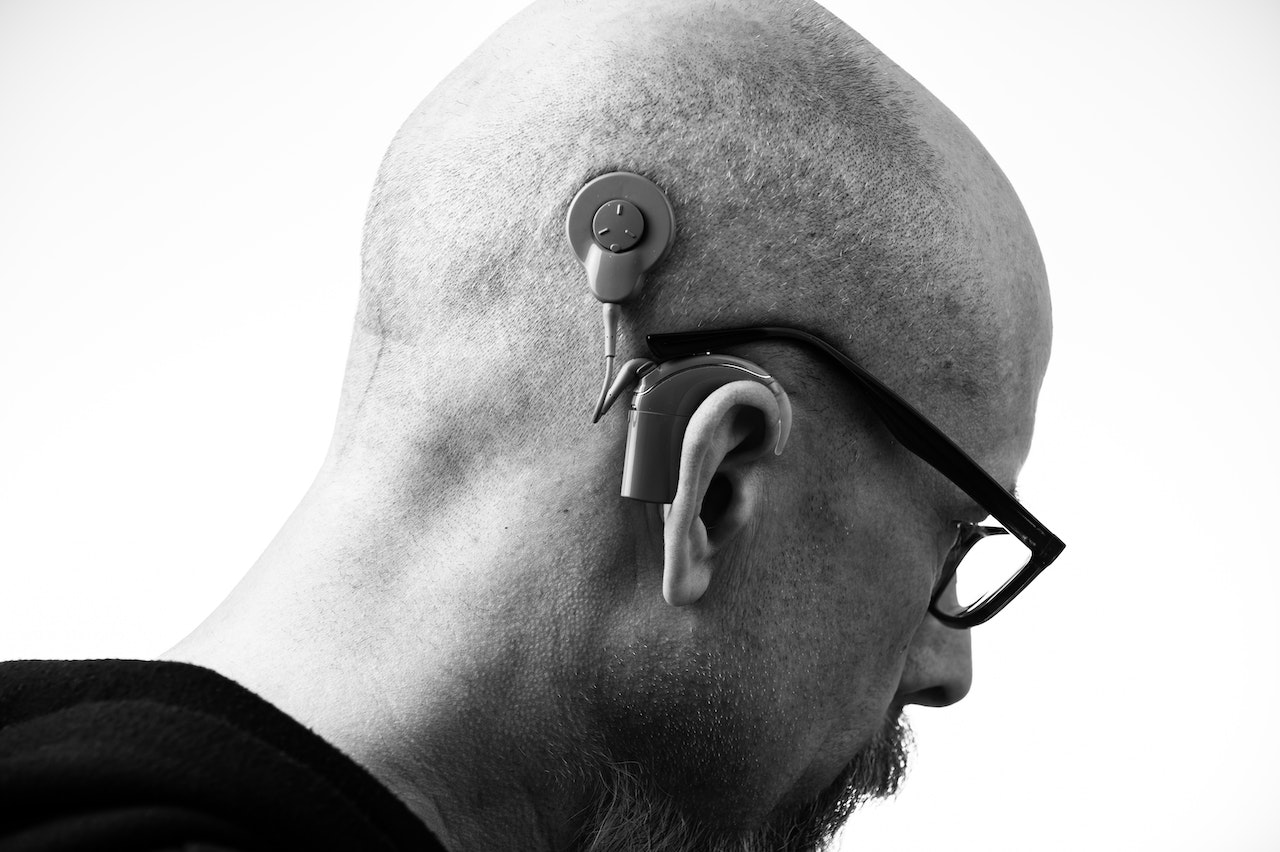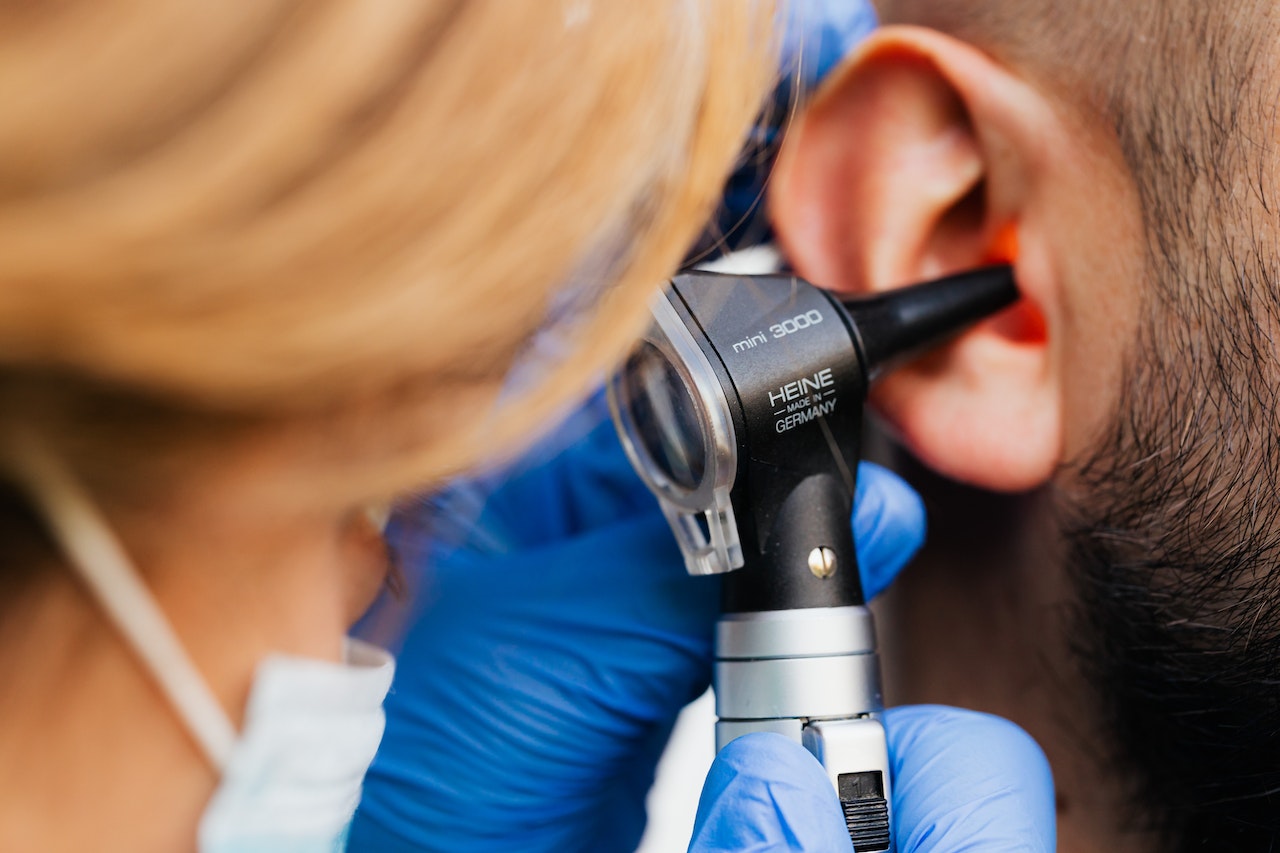Hearing loss causes
Understanding what causes hearing loss can help you protect your own hearing.

The 3 key takeaways
- There are several different causes of hearing loss — Genetics, illness, noise exposure, and aging can all contribute to hearing loss.
- There are different types of hearing loss — Some are caused by nerve disorders or damage to the cells inside the ear, while others are caused by physical obstructions.
- Most hearing loss is irreversible — However, you can work with a hearing specialist to improve the hearing you still have.
Hearing loss affects people of all backgrounds. While it’s most commonly caused by aging and exposure to loud noises, hearing loss can also be genetically inherited or occur as a result of an underlying ear infection.
While those with mild cases may only have trouble hearing softer sounds, severe hearing loss can significantly impact a person’s social life and day-to-day activities.
There are four main types of hearing loss:
Sensorineural hearing loss. The most common type of hearing loss, in which the nerves and hair cells of the inner ear are damaged. This affects how hearing works by disrupting the pathways between the inner ear and the brain.
Most cases of sensorineural loss can’t be cured, but they can be managed with hearing aids – and for guidance on picking the right device, see our guide on how to choose a hearing aid.
Conductive hearing loss. This type of hearing loss is caused by obstructions in the middle or outer ear like fluid, ear wax, foreign objects, and growths like cysts and tumors.
These obstructions prevent sound from reaching the ear drum, but most can be removed with medicine or surgery.
Mixed hearing loss. As its name suggests, people with mixed hearing loss suffer from a combination of sensorineural and conductive hearing loss.
Auditory neuropathy spectrum disorder (ANSD). This occurs when the inner ear can successfully detect sound, but it struggles to accurately send that sound to the brain, which can typically lead to poor speech-perception abilities.
The disorder is most often diagnosed when a person is a child, but it can affect adults as well.
Aging: A clear cause of hearing loss
Aging is one of the most common causes of hearing loss among older adults. It’s so common, in fact, that the National Institute of Health estimates one in three people will have a hearing impairment by the time they turn 65.
Age-related hearing loss most commonly appears in both ears equally as the result of gradual changes in the inner and middle ear over time, but it can also result from changes to the nerve pathways connecting the ears to the brain.
Since age-related hearing loss comes on so gradually, some people who suffer from it may not even realize they have it.
Symptoms of age-related hearing loss include:
- Muffling of speech and other sounds
- Difficulty understanding words, especially in loud or crowded places
- Trouble hearing consonants
- Frequently asking others to repeat themselves or speak more clearly
- Watching the TV or radio at a volume louder than others find comfortable
- Withdrawal from conversations and avoidance of social settings
While hearing loss is increasingly common with age, it can also be a symptom of more serious conditions like diabetes, high blood pressure, stroke, brain injury, or tumor.
Some adults suffer from auditory processing disorders that make it hard to distinguish between certain sounds or understand speech clearly, but aren’t technically considered hearing loss.
Consult a doctor to determine the exact cause of your hearing loss.
Inherited and illness-related hearing loss
Genetics play a significant role in determining a person’s hearing ability. The complex development and function of the cochlea (the part of the ear that changes sounds in the air into nerve signals that go to the brain) is guided by instructions coded into our genes.
When a mutation occurs in even one of these genes, it can result in hearing loss. Around 70% of the mutations that cause hearing loss don’t trigger any other symptoms (non-syndromic), while the other 30% have been reported to affect other systems in the body, including the kidneys, eyes, and heart.
Your genetic makeup can also make you more susceptible to ear damage from loud noises or deterioration from aging.
Common illnesses known to cause hearing loss include:
- Otosclerosis. A rare condition that makes it harder for the tiny bones in the middle ear to move, resulting in conductive hearing loss. Otosclerosis is genetic, and it’s more common in women than men. Symptoms include ringing in the ears (tinnitus), dizziness, and hearing hissing or roaring sounds.
- Ménière’s disease. An inner ear problem that most commonly develops in people between 30 and 50 years old. The cause of Ménière’s disease is unknown. People affected by this condition experience hearing loss that comes and goes, though some loss can become permanent over time. Other symptoms include dizziness, tinnitus, and sensitivity to loud sounds.
- Autoimmune inner ear disease (AIED). An inflammatory condition that occurs when the body’s immune system mistakes cells in the inner ear for a virus or bacteria. AEID is extremely rare, with symptoms including sudden hearing loss in one ear that progresses rapidly to the other. See a doctor as soon as you experience profound hearing loss to keep permanent damage to a minimum.
- Measles. A viral infection that’s most commonly seen in young children, measles causes the brain to swell up and damages nerves in the process. People affected by measles may experience temporary or permanent hearing loss as a potential side effect.
- Mumps. Another condition that’s mostly only seen in children, mumps causes the salivary glands to become inflamed and the cheeks to swell. Mumps can also damage the tiny hairs inside the cochlea, resulting in decreased clarity and volume.
While there’s no definitive link between hearing loss and COVID-19, the virus is thought to be able to enter the ear through the Eustachian tube, which connects the nose and middle ear.
Once inside, it can infect the cochlear (hearing) and vestibular (balance) hair cells in the inner ear, contributing to several potential hearing loss and balance disorders.
Hearing loss and drug side effects
Ototoxic medicines can cause hearing loss in people of all ages, especially older adults who take medications on a regular basis. However, unlike age-related hearing loss, which happens gradually over time, hearing loss that occurs as the side effect of a drug comes on suddenly, accompanied by dizziness and ringing in the ears.
Hearing usually returns to normal after you stop taking the medication, though permanent loss can occur in some cases.
Some common medicines known to cause hearing loss include:
- Aspirin and other non-steroidal anti-inflammatory drugs (NSAIDs). Especially in large doses (8 to 12 pills a day).
- Aminoglycoside antibiotics. This family of drugs, with members including streptomycin, neomycin, and kanamycin, is commonly used to treat infections.
- Loop diuretics. Used to treat high blood pressure and heart failure.
- Chemotherapy drugs. Platinum and taxane drugs used to treat cancer have been linked to significant hearing loss and tinnitus in patients after treatment.
Hearing loss and trauma
Trauma to the head, brain, or ears can result in several hearing and balance disorders. The outer ear can be damaged from a direct head injury, while the insertion of foreign objects into the ear canal can cause irritation of the skin in the canal, or result in a ruptured eardrum.
Similarly, significant pressure changes in the middle ear (such as those felt while flying or diving) can cause pain, hearing loss, and eardrum rupture, also known as barotrauma. The tiny bones in the middle ear known as ossicles can also become dislocated from a blow to the head.
Inner ear trauma can cause certain noises or pitches to become extremely loud or soft. This eventually leads to hyperacusis, a debilitating sensitivity to sounds that makes most day-to-day activities unmanageable.
Inner ear trauma can result from a physical injury or from acoustic trauma, which is caused by exposure to high-decibel noise that damages the auditory nerve. Acoustic trauma can result from occupational noises, loud noises that regularly occur in working environments like factories and construction sites, or recreational noises, like those made by loud music, firearms, and airplanes.
A traumatic brain injury can lead to difficulty interpreting auditory input. In these cases, the patient may not technically have hearing loss, but will still struggle to make sense of the sounds they do hear.
Injuries resulting in hearing loss are especially common among professional athletes, military service members, and other people who regularly put themselves at risk of head trauma and/or exposure to loud noises.
Tumors
An acoustic neuroma is a non-cancerous brain tumor that grows on the nerve that controls hearing and balance, resulting in problems including hearing loss and lack of coordination.
These tumors most commonly affect adults between 30 and 60 years old, though most are detected and treated before they get too serious. Symptoms of an acoustic neuroma include hearing loss that usually only affects one ear, tinnitus, and vertigo.
Larger growths may also cause headaches, blurred or double vision, and numbness, pain, or weakness on one side of the face.
🚨See a doctor immediately if you think a brain tumor might be causing your hearing loss.
Risk factors associated with hearing loss
Noise-induced hearing loss can occur from exposure to any loud noise, though duration and intensity of exposure affect the degree of hearing loss.
Be extra careful when performing the following activities, or avoid them if you can.
- Loud TV and music. Even moderate volume settings on most personal devices, TVs, and car speakers are loud enough to cause hearing damage after prolonged, repeated exposure.
- Concerts. Most pop concerts regularly exceed the 85-decibel threshold for safe noise levels. Wear ear plugs to protect your hearing at live events.
- Fireworks and firearms. Explosions from fireworks and gunfire can reach volumes upwards of 150 decibels, which can seriously damage your ears without the proper protection.
- Smoking. Smoking causes an acute increase in blood pressure that can cut off circulation to the ears and directly contribute to hearing loss. Smokers have a 70% greater chance of developing hearing loss over non-smokers.
- Recreational drug use. In rare cases, auditory disorders like sensorineural hearing loss have been linked to cocaine and opioids like heroin.
Frequently asked questions
What are the 4 types of hearing loss?
The four types of hearing loss are:
- sensorineural hearing loss, in which the nerves and hair cells of the inner ear are damaged
- conductive hearing loss, which is caused by physical obstructions
- mixed hearing loss, in which a person suffers from both sensorineural and conductive hearing loss
- auditory neuropathy spectrum disorder (ANSD), an auditory processing disorder that isn’t technically hearing loss, but still affects a person’s ability to distinguish certain sounds.
What illnesses cause hearing loss?
Several illnesses can cause either temporary or permanent hearing loss, including otosclerosis, Ménière’s disease, autoimmune ear disease (AIED), measles, and mumps.
Can stress cause sudden hearing loss?
Yes. Your body produces adrenaline when it deals with stress, which reduces blood flow to the ears.
When enough stress builds up to permanently offset your circulation, it can cause damage to the tiny hairs in your inner ear.
What is an ear stroke?
Also known as sudden sensorineural hearing loss, an ear stroke occurs when a person suddenly loses part or all of their hearing ability.
Accompanying symptoms include tinnitus, dizziness, and earache. An ear stroke is considered an emergency situation, and should be treated by a hearing specialist as soon as possible.
Why has my ear suddenly gone muffled?
While muffled hearing can be the result of several conditions, it’s commonly caused by excessive ear wax build up.
See a doctor to have the excess wax removed, and have them check for signs of any underlying causes.


